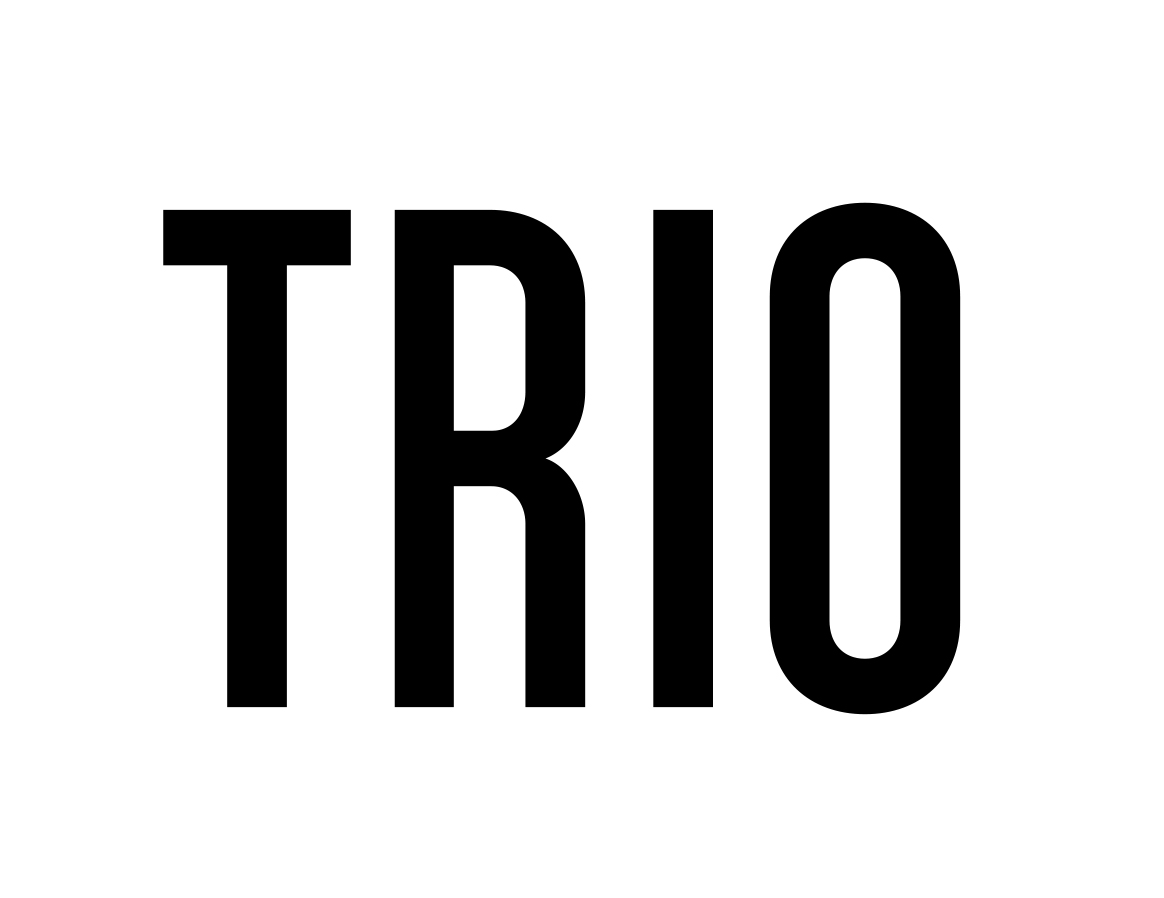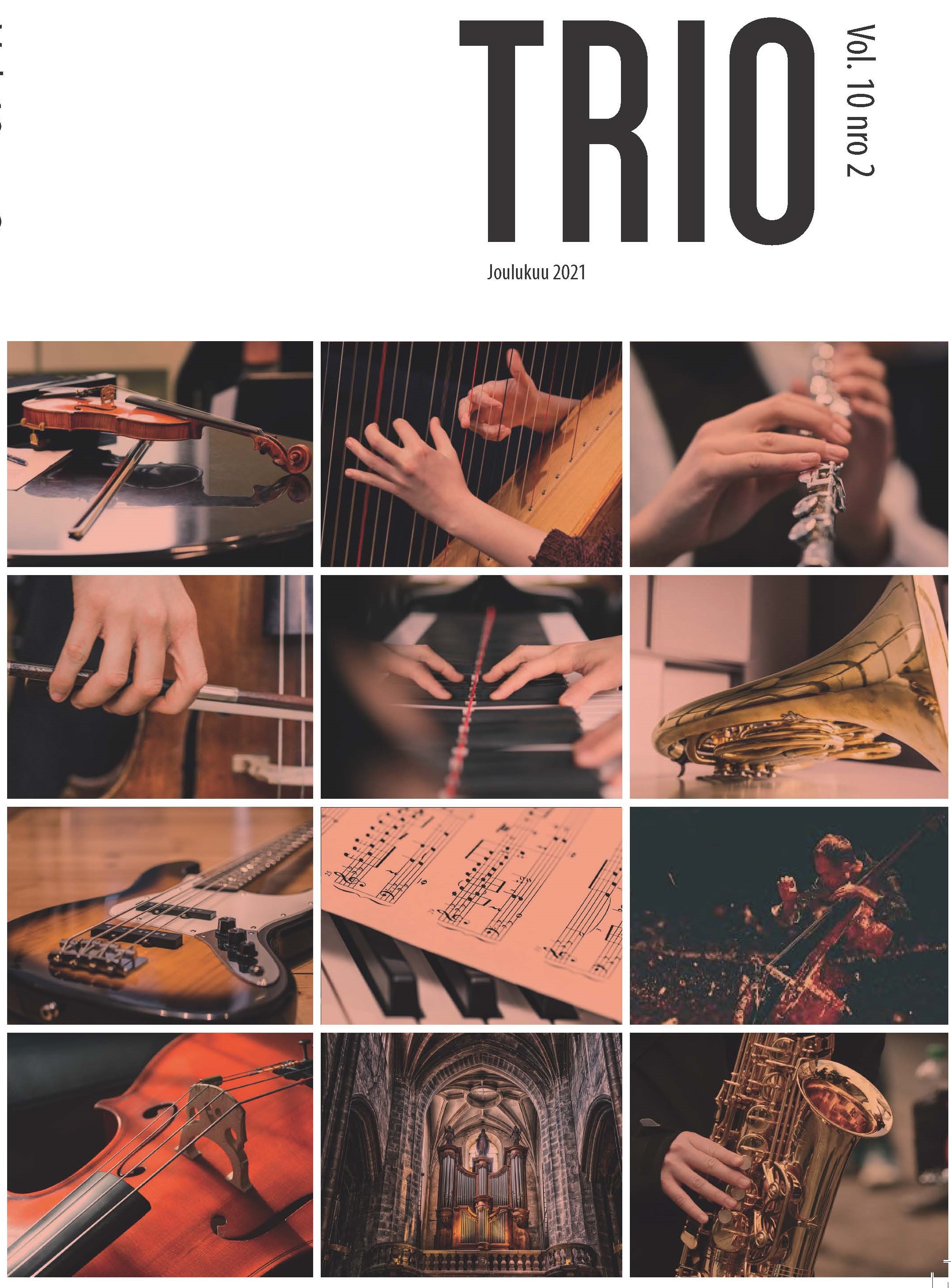Resonance. (Re)forming an Artistic Identity through Intercultural Dialogue and Collaboration
DOI:
https://doi.org/10.37453/trio.113284Avainsanat:
taiteilijaidentiteetti, globaali kansalaisuus, hybridisyys, monikulttuurinen yhteistyö, liminaalisuus, kolmas tila, resonanssi, bassoAbstrakti
This artistic doctoral research examines how the third space emerging from intercultural dialogue and transcultural collaboration can be a catalyst for new musical discoveries, intercultural humility, and the (re)forming of artistic identities. The body of this project is centred around three doctoral concerts, a CD/LP recording, and a documentary film which took place between 2016 and 2021. In addition, I draw on the embodied experience of a five-year period that I spent living and collaborating with musicians and dancers in Tanzania and Zambia prior to the doctoral project.
As a double bass player, multi-instrumentalist, and composer, I place myself in a series of different musical and multi-arts contexts, engaging in dialogue with musicians, dancers, and visual artists from Brazil, Colombia, Estonia, Finland, France, Madagascar, Mexico, Poland, Sápmi, Tanzania, the UK and Zambia. Various solo, duo, and ensemble settings act as case studies to examine how this process takes place, the new knowledge gained from the collaborations and their resulting artistic outcomes, and the effects of intercultural dialogue, collaboration, and co-creation on my own artistic identity. The instruments and forms of artistic expression used by my collaborators include the Brazilian berimbau, Chinese guzheng, dance, live electronics, experimental instrument making, Finnish Saarijärvi kantele, Sámi joik, vocals, percussion, live visuals, image manipulation, animation, photography and film.
The key concepts that I investigate in this research are: artistic identity, global citizenship, hybridity, interculturalism, intercultural humility, liminality, third space theory, and resonance, the latter being viewed both as a physical phenomenon and as an approach to thinking about the ways in which we connect with the world around us. This research contributes to new knowledge and understandings in the areas of artistic identity formation, intercultural collaboration and interculturalism in music education through the interweaving of artistic processes, audio, video, photographs, artistic outcomes and text.
Findings emerge in terms of new musical discoveries that surface from the dynamic third space created through transcultural collaboration; the expanding and deepening of musicianship through intercultural dialogue and collaboration; the interconnected nature of interculturalism in music and its reliance on openness, empathy, dialogue and constant
negotiation with sonic material, people and place; and the crucial role of fluidity and resonance in forming a personal artistic identity.
Further research outcomes include new techniques and the expansion of the sonic palette of the double bass, enabled by developing custom-made attachments, preparations and electronic manipulation. The complete scope of this doctoral project includes four artistic components (three concerts and a recording), a documentary film and an artistic doctoral thesis comprising two peer-reviewed articles and an integrative chapter, all housed within the main multi-media exposition, Resonance: (Re)forming an Artistic Identity through Intercultural Dialogue and Collaboration.
Lähdeviitteet
Appiah, K. A. (2007). Cosmopolitanism: Ethics in a world of strangers. W. W. Norton & Company.
Appiah, K. A. (2018). The lies that bind: Rethinking identity. Profile Books.
Appiah, K. A. (2019). The Importance of elsewhere: In defense of cosmopolitanism. New York,
(2), 20–22, 24.
Bartleet, B. L., Grant, C., Mani, C., & Tomlinson, V. (2020). Global mobility in music higher
education: Reflections on how intercultural music-making can enhance students’ musical
practices and identities. International Journal of Music Education, 38(2), 161–176.
https://doi.org/10.1177/0255761419890943
Bhabha, H. K. (1988). The commitment to theory. New Formations, 5(1), 5–23.
Bhabha, H. K. (1994). The location of culture. Routledge.
Brown, D. (2020, June 12). An open letter on racism in music studies. My People Tell Stories.
https://www.mypeopletellstories.com/blog/open-letter
Green, L. (Ed.). (2011). Learning, teaching, and musical identity: Voices across cultures. Indiana University
Press.
Hargreaves, D. J., Miell, D., & MacDonald, R. A. (2002). What are musical identities, and why are
they important? In A. R. MacDonald, D. J. Hargreaves & D. Miell (Eds.), Musical identities 2
(pp. 1–20). Oxford University Press.
Hess, J. (2018). Challenging the empire in empir(e)ical research: The question of speaking in music
education. Music Education Research, 20(5), 573–590.
https://doi.org/10.1080/14613808.2018.1433152
Jenny, H. (1967). Cymatics (Vol. 1). Basilius Presse.
Jenny, H. (1974). Cymatics (Vol. 2). Basilius Presse.
Kallio, A. A. (2019). Decolonizing music education research and the (im)possibility of methodological
responsibility. Research Studies in Music Education, 42(2), 177–191.
https://doi.org/10.1177/1321103X19845690
Rosa, H. (2013). Social acceleration: A new theory of modernity. Columbia University Press.
Rosa, H. (2019). Resonance: A sociology of our relationship to the world. John Wiley & Sons.
Rutherford, J. (1990). The third space: Interview with Homi Bhabha. In J. Rutherford, Identity:
community, culture, difference (pp. 207–221). Lawrence & Wishart.
Schippers, H. (2010). Facing the music: Shaping music education from a global perspective. Oxford
University Press.
Thomson, N.R. (2021). RESONANCE: (Re)forming an Artistic Identity through Intercultural Dialogue and Collaboration [Doctoral thesis, Sibelius Academy, University of the Arts Helsinki].
https://urn.fi/URN:ISBN:978-952-329-231-4
Turino, T. (2008). Music as social Life: The politics of participation. University of Chicago Press.
Tiedostolataukset
Julkaistu
Numero
Osasto
Lisenssi
Copyright (c) 2021 Nathan Riki Thomson

Tämä työ on lisensoitu Creative Commons Nimeä-EiKaupallinen 4.0 Kansainvälinen Julkinen -lisenssillä.





